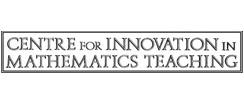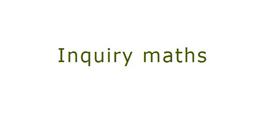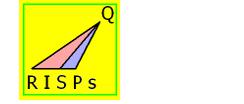Norfolk Maths Conference (secondary) November 2015
A list of the secondary resorces used in the secondary session
- ALL
- Other
Other
Mathematics Enhancement Programme (MEP)
The MEP course has been developed in line with MEP philosophy, which encourages:
• Whole class interactive teaching, including students working at the board
• Mental maths skills
• Correct, precise and orderly spoken and written mathematics
• More whole class progression with less differentiation
• Homework to be used as an integral part of the learning.
In particular the aim is to give all students the opportunity to develop their full potential.
The material in the course has been specifically developed to encourage the philosophy above and in particular, to promote quality whole class interactive teaching.
It is developed from schemes of work, which are essentially based on National Curriculum topics, although some topics of interest and relevance outside the National Curriculum have been included. As well as detail of the philosophy and style of teaching advocated, there is also a full set of curriculum resources for secondary schools, including pupil texts, lesson plans, classroom resources and assessment materials.
SMILE Cards
SMILE (Secondary Mathematics Individualised Learning Experiment) was initially developed as a series of practical activities for secondary school students by practising teachers in the 1970s. It became a complete individualised scheme based around a network of activity cards and assessments.
The cards were organised so that each student followed their own path through the work which was recorded on a network.
This collection contains:
• SMILE workcards organised into mathematical topics based upon the SMILE networks.
• SMILE booklets, which are cards that that are booklets in themselves.
• Supplementary materials.
Inquiry Maths
Inquiry maths is a model of teaching that encourages students to regulate their own activity while exploring a mathematical statement called a prompt. Inquiries can involve a class on diverse paths of exploration or in listening to a teacher's exposition. In inquiry maths, students take responsibility for directing the lesson with the teacher acting as the arbiter of legitimate mathematical activity.
The collection contains three sub-collections containing number themed prompts, algebraic themed prompts and geometry themed prompts. Further information about inquiry lessons and how to create your own prompts can be found on the inquiry maths website.
Instant Maths Ideas
Instant Maths Ideas is a collection of resources designed for teachers to delve into for inspiration, providing the busy teacher with ideas for starters, extension questions and probing questions to supplement their lesson plan.
The collection contains three sub collections: Number and Algebra, Space and Shape and Numeracy and ICT. In each sub collection, the complete resource can be found. In addition, each section of the resource is available as separate topics for ease of use.
Active A-Level Mathematics
A collection of ideas from Susan Wall for use in the A-level mathematics classroom. The activities are written in a manner designed to engage student participation, promote discussion and enhance understanding. Each activity is accompanied by teacher notes suggesting how the task should be approached. The tasks are designed to be an integral part of the learning process allowing students to experience the joy of mathematical discovery for themselves.
Risps: Rich Starting Points for A Level Mathematics
This collection of forty starting activities for A level mathematics provided by RISPs is intended to enrich the lives of mathematics students in lots of A Level classrooms. All the risps presented here tackle topics from AS/A2 Core (Pure) Mathematics syllabus.
These activities are available as a complete collection, presented in ebook, or by topics suitable for AS or A2 level students.
Broadly speaking, a risp may be used in three ways:
• to introduce a topic
• to consolidate a topic
• to revise a topic, or a number of topics.
An introductory risp is specifically designed to give a pathway into new theory. The hope is that by starting to ask for themselves some of the questions that the theory is intended to answer, students will be prepared for the exposition that is to follow.
A consolidation risp provides good practice in the use of skills whilst attempting to answer some wider question. This type of risp will assume some relevant theory to have been previously studied. A consolidation risp will generally be a good revision risp as well. A revision risp is akin to a consolidation risp, but is likely to be more synoptic, drawing together bits of theory from a range of topic areas






